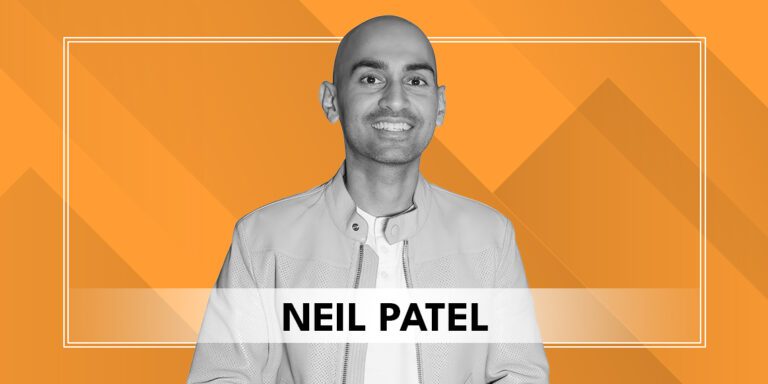“I'm not saying personal brands are ineffective at all, but from a monetary perspective, corporate brands tend to be more powerful.”
Globally recognized for his innovative approach and entrepreneurial success, Neil Patel has made a significant impact in the digital marketing space. Ranked among the top online influencers by The Wall Street Journal and named one of the top 10 marketers by Forbes, Neil has driven growth for industry giants like Amazon, Microsoft, and Google.
His journey, from an introverted entrepreneur to a global authority, highlights a path that resonates with both individuals and corporations. In this interview, he offers a candid glimpse into the experiences that shaped his brand, while revealing why personal branding, though effective, isn’t the full story.
Check out more interviews with entrepreneurs here.
WOULD YOU LIKE TO GET FEATURED?
All interviews are 100% FREE OF CHARGE
Table of Contents
Neil, it’s a pleasure to have you here. Everyone involved in internet marketing knows who you are. You’ve mentioned in the past that while your personal brand has had its successes, it’s not as powerful as a corporate brand. Are you focusing on expanding your personal brand further, or is it more about maintaining it now?
Neil Patel: Thank you for having me. Do I want to grow my personal brand? Not particularly. I’m more of an introvert than an extrovert. So for me, speaking on stage, writing blog posts, and creating content for Instagram and TikTok is something I don’t mind.
The reason I don’t push too much on building my personal brand is because maintaining it drives revenue. It generates roughly $10 million in revenue a year for us. However, the corporate brand drives much more because, at the end of the day, a large corporation doesn’t care who Neil Patel is. They’re risking their job to pay someone; they’d rather hire a company and know they’re not going to get fired. There’s that age-old saying: You don’t get fired for hiring IBM.
Do you think personal brands can still be powerful entry points, even though corporate brands bring in more revenue?
Neil Patel: It’s a great launchpad. I’m not saying personal brands are ineffective at all, but from a monetary perspective, corporate brands tend to be more powerful. They generate significantly more revenue. Plus, you don’t need to be as widely known. Take Danaher, for example. Most people might not recognize the name, but it’s a publicly traded company with a market cap and revenue in the billions.

You mentioned “accidental branding” in your journey. Was building your personal brand something you did intentionally, or did it evolve naturally?
Neil Patel: It was definitely accidental. When I started my first business, I didn’t have money for marketing. So, I would speak at conferences and write articles to generate business. Over time, my personal brand grew organically from that. But I wasn’t trying to build a brand—it was just a way to drum up business.
You’ve always been genuine in your content, whether it’s courses or blog posts. That authenticity really shines through. Do you have a guiding principle when it comes to building your companies?
Neil Patel: My principle is to hire amazing talent who have done it before. For example, our CEO of NP Digital was the president of iProspect, one of the largest performance marketing agencies out there. Why would I try to learn it and do it better than someone who was a head guy at iProspect? The same goes for our other team members, like Dan, who heads up APAC for us and has led Canada for iProspect. Our head of Canada also led Canada for iProspect, and our head of the UK was in charge of sales for them. Our head of France was the managing director of Publicis EMEA, and our head of LATAM came from a WPP company.
I could go on like this for every region we’re in. I hire people with a proven track record who have already accomplished what we’re looking to do—ideally, they’ve done it multiple times.
Looking back, what lessons have you learned from building your personal brand? What advice would you give to new entrepreneurs based on your successes and mistakes?
Neil Patel: The most important lesson is to focus on your vertical, not a niche. The real wealth isn’t found in niches; it’s in large markets, but you still need to concentrate on a specific vertical. Many people think, “I want tons of followers; I want a million likes, 10 million followers,” and so on. However, if people follow you for a lot of random things, it’s challenging to build a business just by being famous. Even if you have massive reach it doesn’t always translate into building a successful business.
On the other hand, consider people like Ben Horowitz or Marc Andreessen. They have a much smaller social media following—maybe a million followers, or even less—but their net worth is significantly higher. Andreessen Horowitz (a16z), for example, is one of the largest venture funds, with assets under management likely over $30 billion.
You don’t need the most followers; you just need to be highly regarded in a large vertical where there’s a lot of money to be made. If your followers are interested in too many different things, it becomes hard to monetize because whatever you offer may not be relevant to all of them.
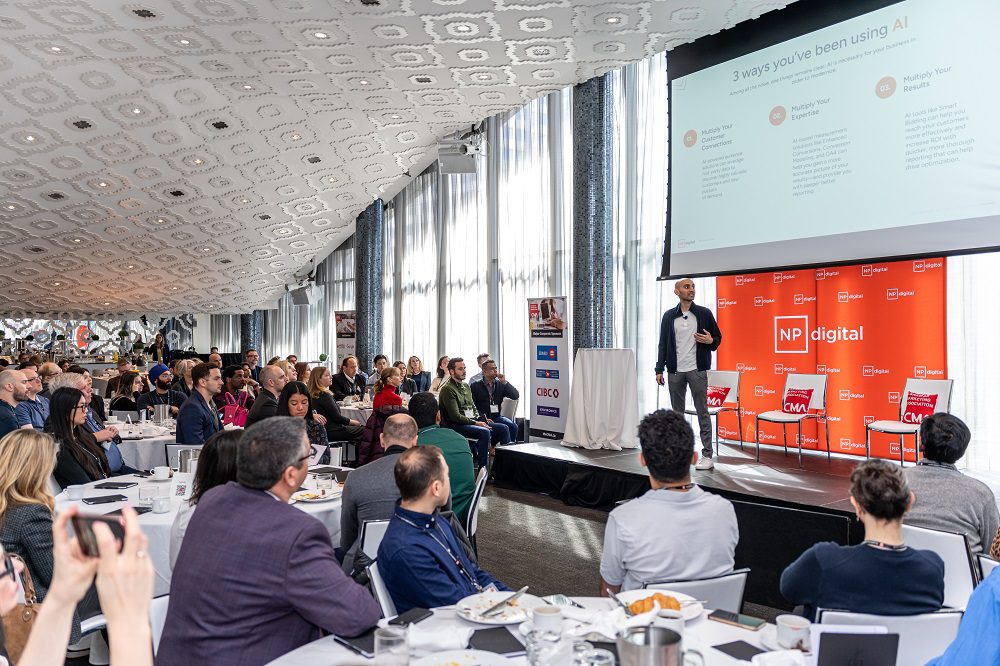
You’ve probably seen people go viral and make no money from it. So, what advice would you give those who are chasing followers?
Neil Patel: Going viral doesn’t always mean you’re making money. Look at Tom Brady—he’s one of the most famous athletes in the world, but his nutrition company isn’t doing as well as expected. Same with Mark Wahlberg’s businesses. Popularity doesn’t always translate into financial success. It’s better to have a smaller, dedicated following in a specific vertical than millions of followers who don’t convert.
It’s true that when big names like athletes or actors venture into business and fail, it’s more noticeable than for regular entrepreneurs. Do you think that creates extra pressure for them?
Neil Patel: Definitely. It’s a double-edged sword. When you’re famous and something doesn’t work out, it’s much more public. But at the same time, they’re used to the ups and downs of their careers in sports or acting. Entrepreneurs are used to failure too. It’s all part of the journey.
Richard Branson wrote a whole book about his failures, which is super inspiring. Speaking of inspiration, what do you want to be remembered for? What’s your legacy?
Neil Patel: I just want to be remembered as someone authentic. Someone who stayed real throughout everything. People respect authenticity, whether they agree with you or not. At the end of the day, you have to be true to yourself, and that’s what matters most.
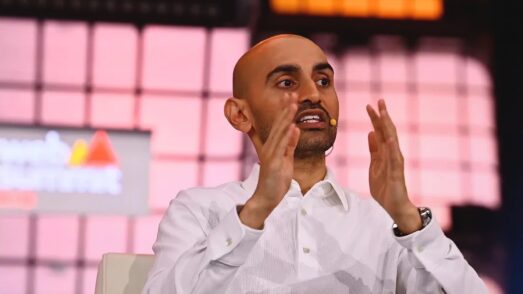
Being real and authentic is certainly what resonates with your audience. Do you have any advice for entrepreneurs trying to navigate between being authentic while also learning from others?
Neil Patel: Don’t worry too much about being a copycat. In fashion, music, and movies, ideas get recycled all the time. Just be yourself and learn from others by observing what works and what doesn’t. But always stay true to who you are.
Who did you look up to when you started, and is there anyone today who impresses you with their business acumen or personal branding?
Neil Patel: I didn’t really look up to anyone in particular when I started. I recommend paying attention to what others in your industry are doing to understand what resonates with audiences, but not to mimic them. I don’t actively follow or look up to others now, but I acknowledge that figures like Elon Musk, Mark Zuckerberg, and Satya Nadella have done exceptionally well. However, trying to replicate their success isn’t always feasible due to differences in personal attributes and circumstances.
Let’s say I admire Tony Robbins. I don’t know him personally, and I don’t really follow him, but if I tried to replicate what Tony Robbins does, it just wouldn’t work. I’m not tall like him, I don’t look like him, my voice isn’t deep like his, and I don’t have the same expertise in certain areas. A lot of what he does is simply his natural self and personality, and this approach has proven effective for him.
It’s pointless to compare, copy, or mimic others. I believe people should focus on what they’re naturally good at and double down on that. Everyone has to find their own path and not worry about what others are doing.
What is your definition of success?
Neil Patel: When I was younger, I defined success by how much money you had in your bank account. As I got older, I realized that success is actually a combination of three things: how much money you have, the quality of your relationships with friends and family, and how healthy you are.
If you don’t have money, it’s hard to do many things in life. If you don’t have friends and family, you’ll feel lonely, no matter how much money you have—it’s a miserable experience. And if you’re not healthy, it doesn’t matter how much money you have or how many friends and family are around; you can’t fully enjoy life if you’re stuck in a wheelchair or confined to a bed.
I see success as encompassing all three: financial stability, strong relationships, and good health. You need to balance and excel in all three areas to truly live life to its fullest.
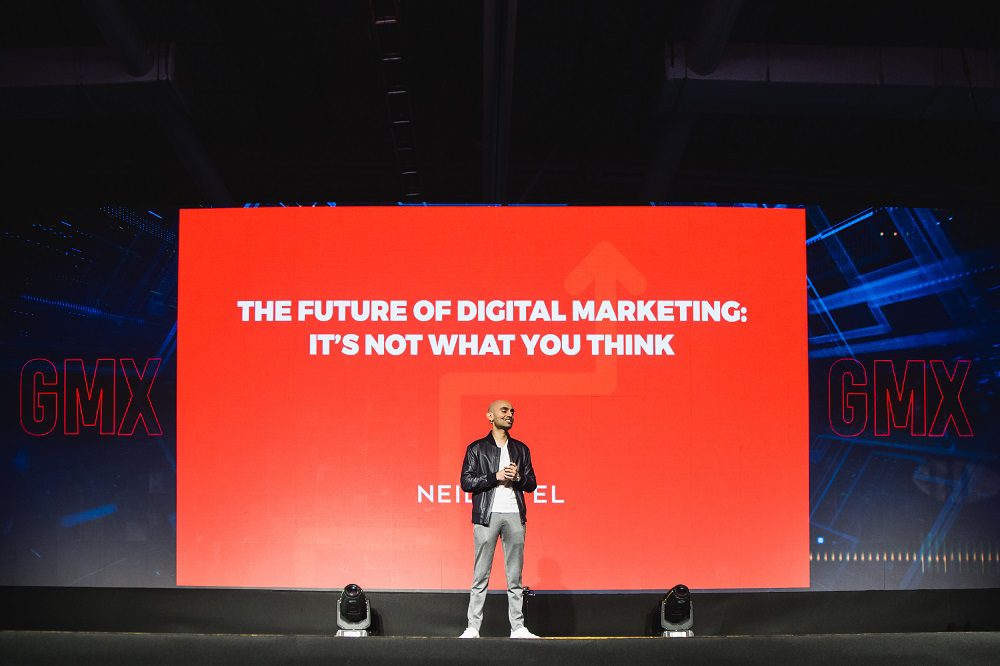
Has becoming Neil Patel impacted your relationships with family and friends, or have you managed to stay grounded and authentic throughout your journey?
Neil Patel: It hasn’t significantly impacted my relationships. I’ve remained true to myself, and my relationships have stayed consistent. Authenticity is crucial, and I believe if you stay true to who you are, those around you will continue to value you for who you are.
Do you have any advice for someone who is debating whether to invest in personal branding or focus entirely on their company? Is personal branding something they should prioritize, or should their efforts be fully directed toward building their business?
Neil Patel: Ideally, do both. A personal brand is great for getting something off the ground, while a corporate brand is essential for sustained growth and long-term success.
Jed Morley, VIP Contributor to ValiantCEO and the host of this interview would like to thank Neil Patel for taking the time to do this interview and share his knowledge and experience with our readers.
If you would like to get in touch with Neil Patel or his company, you can do it through his – Linkedin Page
Disclaimer: The ValiantCEO Community welcomes voices from many spheres on our open platform. We publish pieces as written by outside contributors with a wide range of opinions, which don’t necessarily reflect our own. Community stories are not commissioned by our editorial team and must meet our guidelines prior to being published.
Read Special Edition Articles
- 10 Traits of Highly Successful Entrepreneurs
- Unlocking the Secrets of Smart Goal Setting Leads to Success
- Maximizing the Power of Networking: The Key to Growing Your Business
- Conquering the Top 5 Most Common Challenges Faced by Entrepreneurs
- Discovering the 3 Essential Steps to Building a Strong, Effective Team as a Startup Founder
- The 7 Key Roles of Market Research in Startup Success
- 5 Ways to Unleash the Benefits of Mentorship for Entrepreneurs
- Mastering Financial Management: The Key to Success for Small Business Owners
- The Impact of Artificial Intelligence on Job Markets
- Resilience and Persistence: The Two Essential Ingredients for a Successful Business
Rockstar Profile
The Growth Engine: Neil Patel’s Evolution Toward Marketing Domination

Neil Patel’s name resonates strongly in the world of digital marketing. Known for his success as an entrepreneur, digital marketing expert, and SEO guru, Patel has become a trusted authority for individuals and companies aiming to grow their online presence. His impact extends far beyond SEO, touching nearly every aspect of digital marketing and growth hacking. What makes him so influential isn’t just his technical expertise, but his ability to simplify complex marketing strategies and make them accessible to both experts and novices.
Born in London and raised in California, Neil’s journey began in his teenage years when he developed an interest in the online world. Like many entrepreneurial ventures, his success came from a blend of curiosity, perseverance, and an innate desire to figure things out on his own. His early business failures shaped his marketing approach, laying the groundwork for the profound understanding of digital marketing he is known for today.
He took his newfound SEO knowledge and used it to help other companies, leading to the formation of multiple successful businesses over the years, including Crazy Egg, Kissmetrics, and NP Digital.
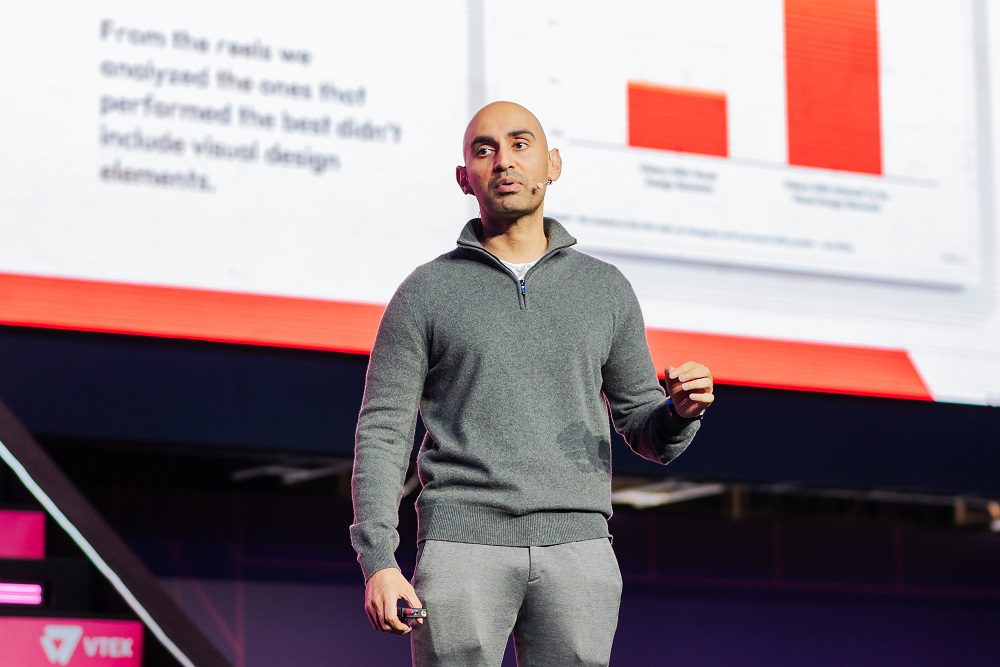
A Self-Starter With Big Dreams
Patel’s entrepreneurial journey wasn’t always smooth. One of his first ventures, an online job board, didn’t gain traction. However, it was through this failure that he discovered search engine optimization (SEO). Realizing how difficult it was to drive traffic to his site, Patel dove headfirst into understanding SEO, and his obsession with cracking the Google algorithm began. What sets Patel apart is his persistence and ability to learn from mistakes, turning failures into stepping stones.
He took his newfound SEO knowledge and used it to help other companies, leading to the formation of multiple successful businesses over the years, including Crazy Egg, Kissmetrics, and NP Digital. As he refined his craft, Neil began to develop a deep understanding of what businesses needed to succeed in the digital space. His focus shifted from merely ranking websites to driving meaningful business results, leading him to become a trusted consultant for major brands like Amazon, NBC, and Viacom.
The Creation of NP Digital
One of Patel’s standout achievements is the establishment of NP Digital, a performance marketing agency that helps businesses scale through strategic digital marketing campaigns. Unlike many agencies, NP Digital focuses on real-world results, ensuring that every marketing initiative is tied to specific KPIs and business goals. What sets NP Digital apart is its holistic approach, using a combination of SEO, paid media, content marketing, and data-driven strategies to achieve client success.
Neil Patel’s vision for NP Digital was to create an agency that puts the customer first. Rather than simply offering SEO or PPC services, Patel’s agency aims to solve broader business problems, helping companies drive traffic, convert leads, and grow revenue. His experience working with global brands allows him to approach digital marketing from a strategic perspective, rather than just a tactical one.

Content That Educates and Empowers
Apart from his work with NP Digital, Neil Patel is a prolific content creator. His blog, neilpatel.com, serves as a resource for marketers and business owners alike, offering actionable tips and insights on everything from SEO to content marketing and social media strategy. What distinguishes Patel’s content is his ability to break down complicated marketing concepts into digestible, easy-to-understand advice. His YouTube channel and podcast, “Marketing School,” co-hosted with fellow marketer Eric Siu, have also become go-to resources for anyone interested in marketing.
One of Patel’s most significant contributions to the marketing community is his emphasis on education. He believes that marketers and business owners shouldn’t just outsource their marketing efforts but should have a fundamental understanding of the strategies and techniques being employed. This belief is evident in the depth of content he produces, aimed at empowering people to take control of their marketing efforts. Patel’s online courses and tools, including Ubersuggest, help entrepreneurs learn and execute SEO strategies without the need for a large budget.
Innovating With Ubersuggest
A major milestone in Neil’s career was his acquisition of Ubersuggest, an SEO tool that helps marketers perform keyword research, track competitor rankings, and analyze their websites. Ubersuggest has since evolved into one of the most widely-used SEO platforms in the industry. Patel’s decision to offer the tool at an affordable price point — even for free with limited features — is a reflection of his belief in making SEO accessible to everyone. By doing this, he’s bridged a gap for small businesses and individual marketers who otherwise wouldn’t be able to afford high-end SEO tools.
With Ubersuggest, Patel managed to turn a standard SEO tool into a user-friendly platform, guiding businesses to make data-driven decisions and improve their online visibility. Patel has consistently updated Ubersuggest to keep up with the changing dynamics of SEO, ensuring that users always have access to the latest features and functionalities.
Neil Patel’s Philosophy on Branding
One of the more fascinating aspects of Neil Patel’s career is how he navigates the balance between personal branding and corporate branding. In interviews, Patel emphasizes that while both are crucial, neither should overshadow the other. His journey reflects this approach, as he has successfully cultivated both his personal brand and his corporate presence in parallel. NP Digital may be a powerful brand in its own right, but it remains intertwined with Patel’s personal reputation, fostering trust with clients through that connection.
Patel advocates for the importance of building a personal brand, but he also believes that a strong corporate brand is essential for long-term success. For Patel, personal branding offers entrepreneurs the flexibility to evolve and take on new ventures, while corporate branding solidifies the business’s credibility. His insights have inspired many business leaders to view both aspects as complementary forces that, when aligned, drive sustained professional growth.
The Influence of Neil Patel on Digital Marketing
Few individuals have influenced the world of digital marketing as much as Neil Patel. His expertise spans far beyond SEO, touching on email marketing, social media, content marketing, and even conversion rate optimization. What makes him unique is not just his technical knowledge but his ability to connect with his audience on a personal level. Whether through blog posts, videos, or in-person conferences, his teaching style is both approachable and insightful.
His influence is felt across industries, as businesses of all sizes turn to him for advice. From Fortune 500 companies to small startups, his strategies have been implemented globally to drive traffic, boost conversions, and grow businesses. What’s remarkable about Patel is that he’s not just teaching theory — he actively practices what he preaches through his various ventures and client work.
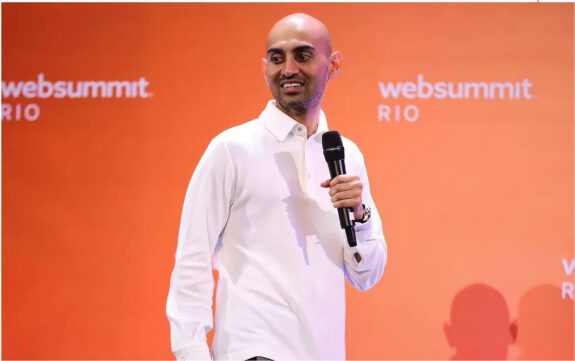
Looking Ahead: Neil Patel’s Future in Digital Marketing
As the world of digital marketing continues to evolve, Neil Patel remains at the forefront of innovation. With the increasing role of artificial intelligence and automation in marketing, Patel is already adapting his strategies to incorporate these new technologies. He sees AI as a game-changer for marketers, allowing businesses to analyze data at scale and deliver hyper-personalized experiences to their audiences.
However, despite his focus on technology, he remains grounded in his belief that marketing is fundamentally about understanding human behavior. No matter how advanced the tools become, Patel’s approach remains rooted in building genuine connections with audiences and solving real-world business problems.
If you’d like to get in touch with Neil Patel, you can connect with him on his social media platforms:
LinkedIn: www.linkedin.com/in/neilkpatel
Facebook: www.facebook.com/neilkpatel
Instagram: www.instagram.com/neilpatel
X (formerly Twitter): https://x.com/neilpatel




